Papers by Harold Teichman
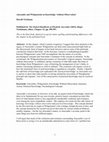
The Oxford Handbook of Elizabeth Anscombe, Aug 18, 2022
In this chapter, which is purely exegetical, I suggest that close attention to the legacy of Ansc... more In this chapter, which is purely exegetical, I suggest that close attention to the legacy of Anscombe’s mentor Wittgenstein can shed some unaccustomed light both on the idiosyncratic form of inquiry in her book Intention and on some of the particular conclusions found in that book. In the first part, I point to a methodological parallel between Wittgenstein’s post-1945 investigations into the nature of everyday psychological concepts and Anscombe’s treatment of the concept of intention. In the second part, the Wittgensteinian provenance of Anscombe’s logical category ‘knowledge without observation’ is exhibited, and her extension of what falls under this form of knowledge (from Wittgenstein’s case of knowing the arrangement of one’s limbs, to matters concerning intention as well) is outlined. This extension will require a twist in how the intentional form of such knowledge is regarded as corrigible. Finally, I identify the odd form of knowledge just explicated with ‘practical knowledge’ as Anscombe sees it, and try to show that some puzzles revolving around her invocation of Theophrastus’ principle and Aquinas’ view of the causal power of practical knowledge may be resolved thereby.
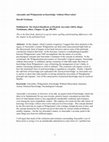
The Oxford Handbook of Elizabeth Anscombe, 2022
In this chapter, which is purely exegetical, I suggest that close attention to the legacy of Ansc... more In this chapter, which is purely exegetical, I suggest that close attention to the legacy of Anscombe’s mentor Wittgenstein can shed some unaccustomed light both on the idiosyncratic form of inquiry in her book Intention and on some of the particular conclusions found in that book. In the first part, I point to a methodological parallel between Wittgenstein’s post-1945 investigations into the nature of everyday psychological concepts and Anscombe’s treatment of the concept of intention. In the second part, the Wittgensteinian provenance of Anscombe’s logical category ‘knowledge without observation’ is exhibited, and her extension of what falls under this form of knowledge (from Wittgenstein’s case of knowing the arrangement of one’s limbs, to matters concerning intention as well) is outlined. This extension will require a twist in how the intentional form of such knowledge is regarded as corrigible. Finally, I identify the odd form of knowledge just explicated with ‘practical knowledge’ as Anscombe sees it, and try to show that some puzzles revolving around her invocation of Theophrastus’ principle and Aquinas’ view of the causal power of practical knowledge may be resolved thereby.
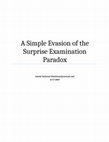
The Paradox of the Surprise Examination has often been addressed as a problem of the temporality ... more The Paradox of the Surprise Examination has often been addressed as a problem of the temporality and defeasibility of second (or higher) order knowledge or belief. Once one has properly re-phrased the apparently paradoxical rules in terms of ‘K’ operators obeying suitable axioms, one hopes that the paradox vanishes. But no such approach has yet been generally agreed upon as a true dissolution of the paradox. It is argued in this paper that the real anatomy of the paradox is of a different, simpler kind (which I call ‘structural’), and that the usual statement of the rules is in fact simply inconsistent. This inconsistency can easily be remedied, however, thus yielding a practice which is indistinguishable from that which the paradoxical rules aim to capture. In such a way the paradox can be evaded. The ‘heap-like’ character of the paradox, i.e. the fact that the more days are involved in the term, the less plausible is the paradoxical reasoning’s sway over us, emerges here as a simple consequence of the prima facie probability of the examination’s falling on the last day.
Some new examples of metaphysically necessary statements, concerning individuals, which do not ap... more Some new examples of metaphysically necessary statements, concerning individuals, which do not appear to say anything about those individuals' essences, were adduced by Fine in 1994: the singleton-Socrates cases. I here suggest a view of essence according to which not only do metaphysically necessary properties of individuals fail to capture essence in the Fine cases, but the divide between essence and necessity opens yet wider. Essential properties may fail to express metaphysical necessities of their individual bearers for a large class of natural kinds: the class of living kinds. This failure distinguishes them from the familiar cases of Kripke– Putnam inanimate natural kinds.
Drafts by Harold Teichman
Some significant differences between Elizabeth Anscombe and Michael Thompson in their treatment o... more Some significant differences between Elizabeth Anscombe and Michael Thompson in their treatment of intentional action are noted. One of the roots of these differences, perhaps, is that Anscombe's book Intention is an adumbration of a Wittgensteinian language-game, while Thompson's theory is not.
Detailed, albeit preliminary, consideration of Doyle's arguments in his book No Morality, No Self... more Detailed, albeit preliminary, consideration of Doyle's arguments in his book No Morality, No Self. (Not written for those who've not read Doyle.)

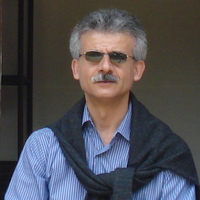

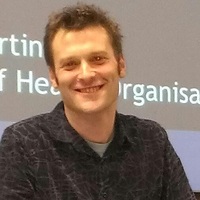
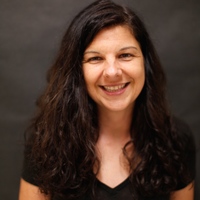
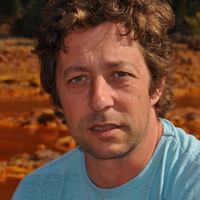

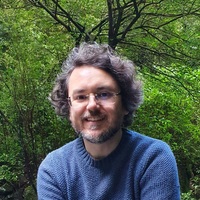

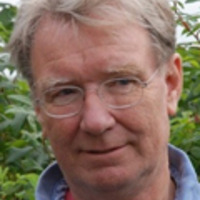

Uploads
Papers by Harold Teichman
Drafts by Harold Teichman